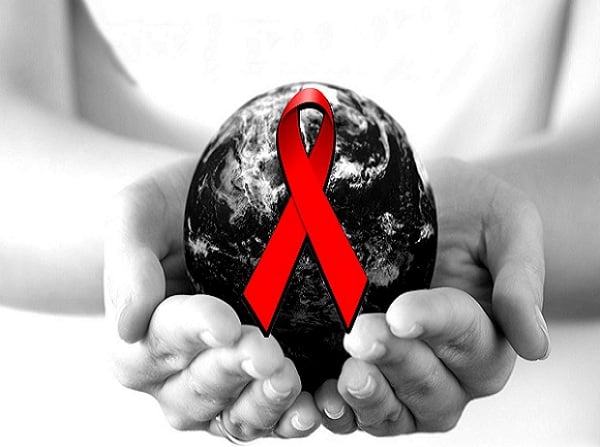Deadline: 28-Feb-22
The Centers for Disease Control (CDC) is seeking applications for the Enhanced Systems Strengthening Interventions for Sustainable Laboratory Services Delivery for HIV, TB and Other Diseases of Public Health Importance in Nigeria under the President’s Emergency Plan for AIDS Relief (PEPFAR).
This NOFO will support broad-based national LSS interventions, including but not limited to the use of innovative approaches for the implementation of strategic optimization of laboratories for improved equipment capacity, utilization, and enhanced delivery of VL, IVT/EID, HIVDR, and TB services to meet the expanding service delivery demand across all CDC-supported states, through a collaborative partnership with the Government of Nigeria (GON), host facilities, and key stakeholders.
It will support sustainable human resource (HR) capacity building for efficient QMS that ensures services meet quality standards; improved supply chain management for commodities security across the laboratory network; improved laboratory equipment, biosafety and biosecurity management for the protection of personnel, products and the environment from infectious or toxic agents; and targeted infrastructure and HR capacity building for enhanced IDS and use of laboratory data to inform patient care and public health decisions.
Funding Information
- Approximate Total Fiscal Year Funding: $10,000,000
- Total Period of Performance Length: 5 year(s)
- The expected number of awards is 1-2.
- Approximate Average Award: $10,000,000
Outcomes
- Short-Term Outcomes:
- Improved capacity of zonal/state reference public health laboratories for integrated disease diagnosis, treatment monitoring and surveillance
- Improved infrastructure and HR capacity for optimized delivery of VL, IVT/EID, HIVDR, TB and other disease testing services
- Infrastructure implies provision of adequate work space equipment, electronic systems, and utilities
- HR capacity indicates availability of skilled and trained workforce
- Improved capacity of laboratories for implementation of laboratory quality essentials
- Quality implies adherence to the 12 elements from infrastructure to documentation for successful performance in quality assurance
- Increased capacity for standard equipment management across the network of laboratories
- Equipment management refers to using a system to track, monitor, and manage equipment for successful performance
- Increased implementation of standardized laboratory waste management, biosafety, and biosecurity systems across all laboratories
- Increased implementation of standard inventory and logistics management across CDC supported laboratories
- Improved government capacity to coordinate and manage the laboratory network
- Intermediate Outcomes:
- Improved efficiency for IDT and surveillance
- Improved efficiency in laboratory services delivery of VL, IVT/EID, HIVDR, TB and other diseases testing
- Improved quality of laboratory services and results for patient management
- Quality implies adherence to the set guidance (national policy and operational guidance), reduced error rate and optimized turn-around time, and successful performance in quality assurance
- Improved equipment capacity utilization and efficiency
- Improved bio-risk management system across the laboratory network to reduce incidence of biohazard exposure
- Biorisk refers to the probability that a particular adverse event like accidental infection or unauthorized access, loss, theft, misuse, diversion or intentional release, possibly leading to harm, will occur
- Improved supply chain management system and commodity security
- Improved performance of laboratory network at all levels of care through GON leadership and coordination
- Network means linking several laboratories to form a national network to meet national testing needs
- Long Term Outcomes:
- Sustained delivery of quality-assured HIV, TB, and other disease-related laboratory services for clinical and public health decisions
Target Populations
The target populations for this NOFO include but are not limited to; PLHIV including those on ART, HIV exposed infants, PBFW, OVC, KP including men who have sex with men, people who inject drugs, female/male sex workers, and transgender; and other PEPFAR program beneficiaries needing molecular laboratory services for HIV, TB and other diseases of public health importance. Other target populations for this NOFO include laboratory professionals and other health care workers, health care facilities/clinical laboratories supported by CDC, other USG/PEPFAR and GFATM programs, GON program leads at all levels of care, and the general population/clients of disease outbreak investigations, surveillance, and response activities.
Eligibility Criteria
- Government Organizations:
- State governments or their bona fide agents (includes the District of Columbia)
- Local governments or their bona fide agents
- Territorial governments or their bona fide agents in the Commonwealth of Puerto Rico, the Virgin Islands, the Commonwealth of the Northern Marianna Islands, American Samoa, Guam, the Federated States of Micronesia, the Republic of the Marshall Islands, and the Republic of Palau
- State controlled institutions of higher education
- American Indian or Alaska Native tribal governments (federally recognized or state-recognized)
- Non-government Organizations
- American Indian or Alaska native tribally designated organizations
- Other
- Ministries of Health
For more information, visit https://www.grants.gov/web/grants/view-opportunity.html?oppId=335261
